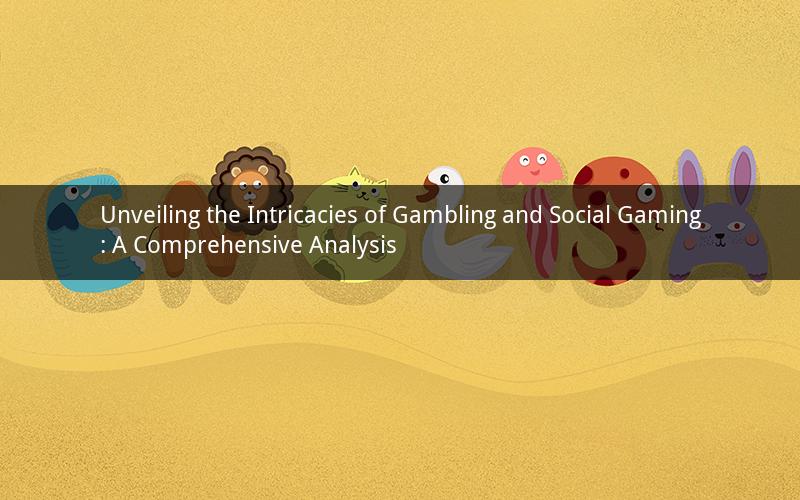
Gambling and social gaming have long been intertwined, captivating the interest of millions worldwide. While both involve elements of risk and reward, they differ significantly in their structure and purpose. This article delves into the essence of gambling and social gaming, exploring their origins, characteristics, and impact on society.
Gambling, at its core, is a form of betting where participants wager money or something of value on an uncertain event. The allure of potentially winning big sums of money has made it a popular pastime for centuries. However, it is essential to understand the risks associated with gambling to make informed decisions.
1. What is gambling?
Gambling can take various forms, including casino games, sports betting, lottery, and poker. The common denominator is the element of chance, where the outcome is uncertain. Individuals engage in gambling for entertainment, financial gain, or both.
2. Types of gambling
a. Casino gambling: This involves playing games like slots, blackjack, roulette, and poker in a casino setting.
b. Sports betting: It involves placing bets on the outcome of sporting events, such as football, basketball, or tennis.
c. Lottery: Participants purchase tickets with the hope of winning a substantial prize.
d. Poker: A card game where players compete against each other to win the pot, which is determined by the strength of their hands.
Social gaming, on the other hand, is a form of interactive entertainment that often involves online platforms. It is designed to be engaging, challenging, and entertaining, with a focus on social interaction rather than financial gain.
3. What is social gaming?
Social gaming refers to games played on social networking platforms, such as Facebook, or dedicated social gaming websites. These games often feature a mix of strategy, puzzle-solving, and social elements, allowing players to connect with friends and strangers alike.
4. Characteristics of social gaming
a. Social interaction: Social gaming emphasizes communication and collaboration among players, often through chat or in-game features.
b. In-game rewards: Players can earn virtual goods, achievements, or in-game currency, which can be used to enhance their gaming experience.
c. Time investment: Social games are designed to be played over an extended period, with players returning to the game to progress and interact with others.
The impact of gambling and social gaming on society is multifaceted, with both positive and negative consequences. Understanding these effects can help individuals make informed decisions and mitigate potential risks.
5. Impact of gambling on society
a. Economic benefits: Gambling generates significant revenue for governments, which can be used for public services and infrastructure development.
b. Addiction: Problem gambling can lead to financial, social, and psychological consequences, affecting both individuals and their families.
c. Crime: Illegal gambling operations can lead to increased crime rates, including fraud, theft, and violence.
6. Impact of social gaming on society
a. Social connection: Social gaming can foster friendships and strengthen existing relationships, as players collaborate and compete.
b. Mental health: Some studies suggest that social gaming can improve mental health by reducing stress and promoting relaxation.
c. Time management: Excessive gaming can lead to neglect of real-life responsibilities, such as work, school, and family.
Frequently Asked Questions:
1. What is the main difference between gambling and social gaming?
The primary difference lies in their purpose. Gambling is centered around winning money or material rewards, while social gaming focuses on entertainment and social interaction.
2. Is social gaming addictive?
Like any form of entertainment, social gaming can be addictive. However, the risk of addiction is often lower than that of gambling, as there is no financial incentive to play.
3. Can social gaming lead to gambling problems?
While social gaming is not inherently linked to gambling, individuals with a predisposition to gambling may be more susceptible to developing gambling problems if they engage in social gaming.
4. How can I tell if I have a gambling problem?
If you find yourself spending an excessive amount of time and money on gambling, neglecting other responsibilities, and experiencing negative consequences, it may be a sign of a gambling problem.
5. Are there any benefits to social gaming?
Yes, social gaming can provide numerous benefits, including improved social skills, mental health, and a sense of belonging within a community.
In conclusion, gambling and social gaming are both fascinating and complex phenomena. While they share some similarities, such as the element of chance, their underlying purposes and impacts on society differ significantly. Understanding these differences can help individuals make informed decisions and enjoy these activities responsibly.